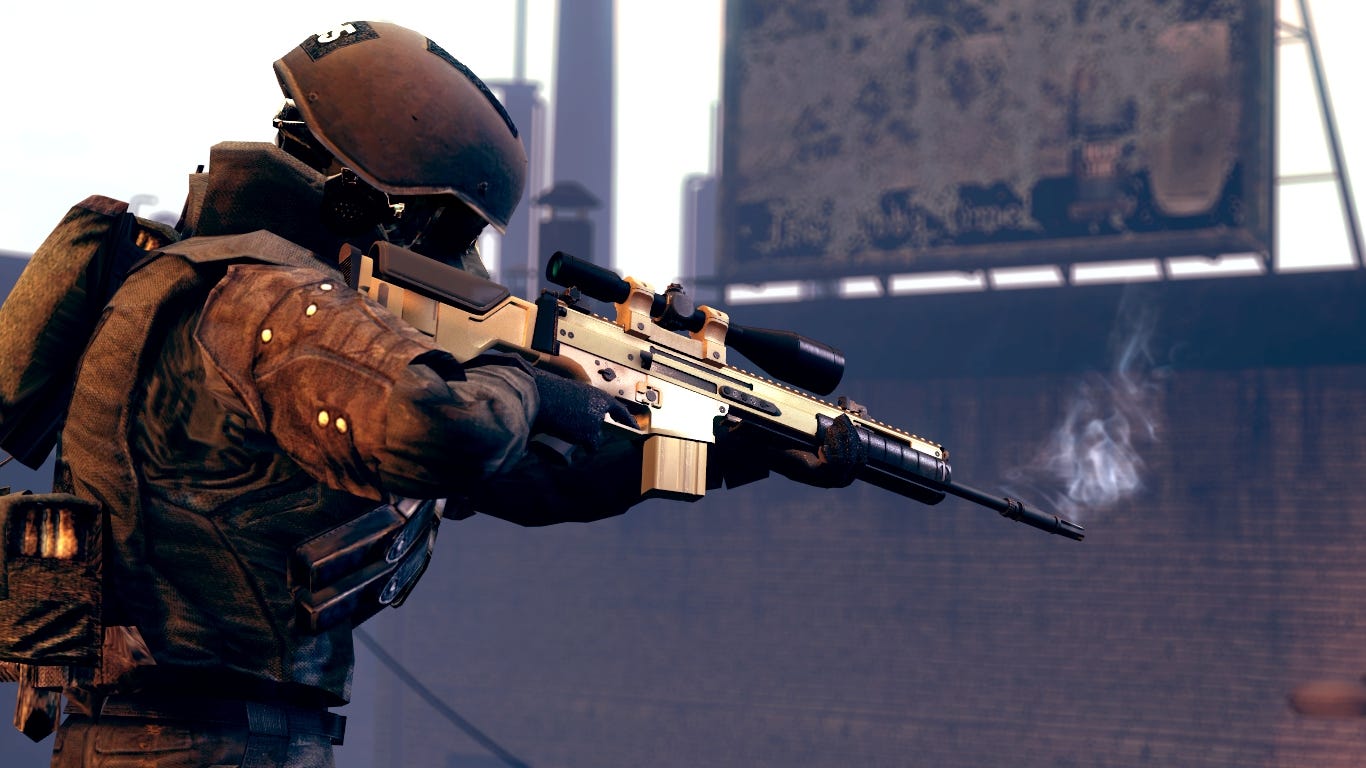Esports betting committee takes stage in Nevada
Sharpr is a weekly newsletter covering the intersection of esports and betting
Hi everyone, Cody here.
Sin City’s regulator hosted a crucial meeting Tuesday bringing together what is essentially the state’s esports betting task force for its first public hearing since forming in November of last year.
This week’s newsletter will focus on providing a deep dive into the two-and-a-half-hour discourse and the SparkNotes (remember that?) on what went down and what you need to know.
In this week’s edition of Sharpr…
Nevada’s esports committee takes stage in Las Vegas
An integrity spotlight from the Esports Integration Commission
Latest industry headlines and data
If this newsletter was forwarded to you, please consider subscribing.
Esports betting committee takes stage in Nevada
The Esports Technical Advisory Committee — a group of individuals formed by the Nevada Gaming Control Board in November 2021 to foster esports betting opportunities in the state — held a public hearing on Tuesday at the regulator’s Las Vegas office.
The esports committee includes individuals from the esports and gambling industries, with members representing a variety of companies such as Twitch, Activision, Penn National Gaming, Fifth Street Gaming, and Allied Esports.
Last week, the Gaming Control Board welcomed an executive from game publisher Ubisoft, makers of the popular first-person shooter Rainbow Six Siege.
Nevada regulation permits esports wagering on a per-event basis, but requires licensed operators to submit an application to the Gaming Control Board for approval for each competition.
Ian Smith, commissioner of the Esports Integrity Commission, a non-profit organization tasked with safeguarding competitive integrity in the esports industry, kicked off Tuesday’s hearing. Integrity remained a consistent topic throughout the meeting, with Smith highlighting a number of industry roadblocks for operators and regulators to take note of.
In 2020, the Esports Integrity Commission identified 126 suspicious betting alerts, up from 46 the previous year.
The esports watchdog says the organization has been “overwhelmed,” noting that the uptick in esports wagering during the pandemic saw an increase in bad actors.
“We’ve been overwhelmed,” Smith said during the meeting. “The pandemic threw us all such a gigantic curveball that we’re only now catching up with the recruitment of a full-time investigations manager.”
Part of Smith’s presentation addressed what he deems a “safe event” for operators and regulators, noting that he feels confident in the organization’s member associations — which include the likes of ESL, BLAST Premier, and WePlay Esports — as part of the conversation.
Interestingly, Smith says he has “trepidation” about Activision Blizzard’s esports properties (Overwatch League and Call of Duty League) purely from a point of view of not having enough information to make a sound assessment. According to Smith, Activision has been “incredibly uncooperative,” despite his efforts to collaborate with the publisher since 2015.
A partnership with ESIC means that a game publisher, tournament operator, sportsbook, or other entity is adhering to the organization’s anti-corruption code of conduct, as well as providing ESIC with an overview of competitive integrity measures to ensure matches are being played in a safe manner. OWL and CDL are generally thought to be free of foul play as tier one esports events, though without ESIC’s insight Smith says that while he’s not deeming these leagues unsafe, he’s simply not able to say definitively that they are safe.
Striking the balance
Esports Entertainment Group VP of Strategy Jeff Cohen commended the Nevada regulators for assembling its esports committee and identifying esports as a growth area for gambling.
“By taking this initiative, you’re already ahead of the vast majority of state regulators in addressing this area,” he said.
Cohen first addressed a common industry misperception that much of the esports audience is underage, a belief that has long hamstrung the industry’s prospects as a betting category from a regulatory standpoint.
Cohen attempted to dispel this by citing data from the Entertainment Software Association (the trade association of the video game industry) which states that the average age of a gamer in the United States is 31 years old, and over 80% of gamers are over the age of 18.
“While it’s also true that the average age of an esports bettor skews about a decade younger than that of a traditional sports bettor, our belief is that makes it even more important to legalize and regulate the product,” Cohen said. “Plenty of esports betting is already taking place. It’s just being done on offshore sites that don’t have the proper controls in place. Once it’s legalized and brought into the light of day, we can ensure that no underage gamblers are able to access our software. This will ensure a safer ecosystem for all involved.”
As with Nevada, regulation in New Jersey, where Cohen and his company have recently been approved to accept esports wagers in, is “manual, slow, and cumbersome for both operators as well as regulators,” he said
“This creates a poor user experience for players and events are approved without lead times to properly market events.”
The burden of per-event approvals was made strikingly apparent during Tuesday’s hearing when it was revealed that Nevada operators had not submitted a single esports event for regulatory approval in 2021.
This was a surprising deviation from the year prior where Nevada approved a dozen esports events for wagering across titles such as Counter-Strike: Global Offensive, League of Legends, iRacing, Call of Duty, and Overwatch.
Another common theme throughout the day’s discourse? A pre-approved, whitelist of esports events for operators to accept wagers on.
According to Cohen, Esports Entertainment Group is already working with New Jersey regulators on creating such a list, and urged the esports committee in Nevada to consider implementing one of its own. With that, he believes collaboration from various gambling commissions across multiple jurisdictions can alleviate arduous approval and investigation efforts, and we tend to agree with that.
“We believe cooperation and communication between different gambling commissions may help ease the burden of diligence in various leagues and events and eliminate duplication investigations across jurisdictions,” Cohen said. “The sharing of knowledge across the ecosystem would greatly benefit all involved.”
A call for attention to in-play and prop betting in esports was additionally brought up during Cohen’s presentation, both of which are not currently permitted in New Jersey or Nevada. And to his point, in-play betting makes up 59.6% of Counter-Strike betting and 43.2% of League of Legends betting, according to research from data provider PandaScore.
🦈 Sharpr Take: While Tuesday’s hearing was fairly information heavy, it was certainly an enlightening first public meeting from the state’s esports committee, bringing up a number of key discussion points and adding clarity to the conversation of how esports can work as a betting product for the long haul.
The main obstacle for esports betting, both in Nevada and nationwide, will continue to be rooted in educating regulators and state officials on the industry. One brief point of contention reached during the hearing surrounded game updates and rule changes — a frequent occurrence in competitive gaming. Such updates come and go in swathes across a multitude of titles, so while everyone can appreciate gambling regulators' meticulous approach to assessing events for safety and regulation, this sort of hesitancy will need to be quelled for the fast-moving nature of esports if it has any chance of succeeding.
On the other hand, the notion of a pre-approved whitelist of esports events would likely go a long way for everyone involved, from the regulators down to the bettors, and should be viewed as a key area of focus in driving the sector’s growth. Most avid esports fans can look at an event such as the CS:GO ESL Pro League or Dota 2 International and know that’s going to be a safe event free of foul play, but regulators don’t have that level of intimacy and connection with the industry to say that with conviction — at least not yet.
The Esports Integrity Commission should be able to play a noticeable role in helping educate decision makers of what is and isn’t safe for betting, with further maturation of the industry only benefiting the overall cause. The esports watchdog has been growing exponentially over the past few years, too — the growth of the non-profit organization may also allow for more time and greater resources to work with regulators on legislation and protocols that would advance esports betting.
All in all, this week’s meeting was a productive one, and with the esports committee continuing to meet quarterly throughout the year, there should hopefully be more difficult conversations brought to a head in an effort to make esports betting accessible in Nevada.
💸 Stock movers & shakers
Esports Entertainment Group (NASDAQ: GMBL) shares slid 22% this week, reaching an all-time low of $0.70 before bouncing back to $0.83.
Esports Technologies (NASDAQ: EBET) stock is down 1% this week.
🗞 In the news
Real Luck Group, the owners and operators of esports betting platform Luckbox, has appointed Benn Timbury as Chief Operating Officer.
Esports Entertainment Group completed a public offering of common stock and warrants, raising proceeds of $13.6 million.
📈 By the numbers
Betting fraud drives 92% of match-fixing in esports, according to data from the Esports Integrity Commission presented during an Esports Technical Advisory Committee meeting.
Over 450 million people watched esports in 2021 — and by 2024, that figure is estimated to reach 577 million according to data from Statista.
Contact us
News tips, feedback, and sponsorship inquiries.
Reach me directly at Cody.Luongo@wagers.com or on Twitter: @Luongo_Pro






